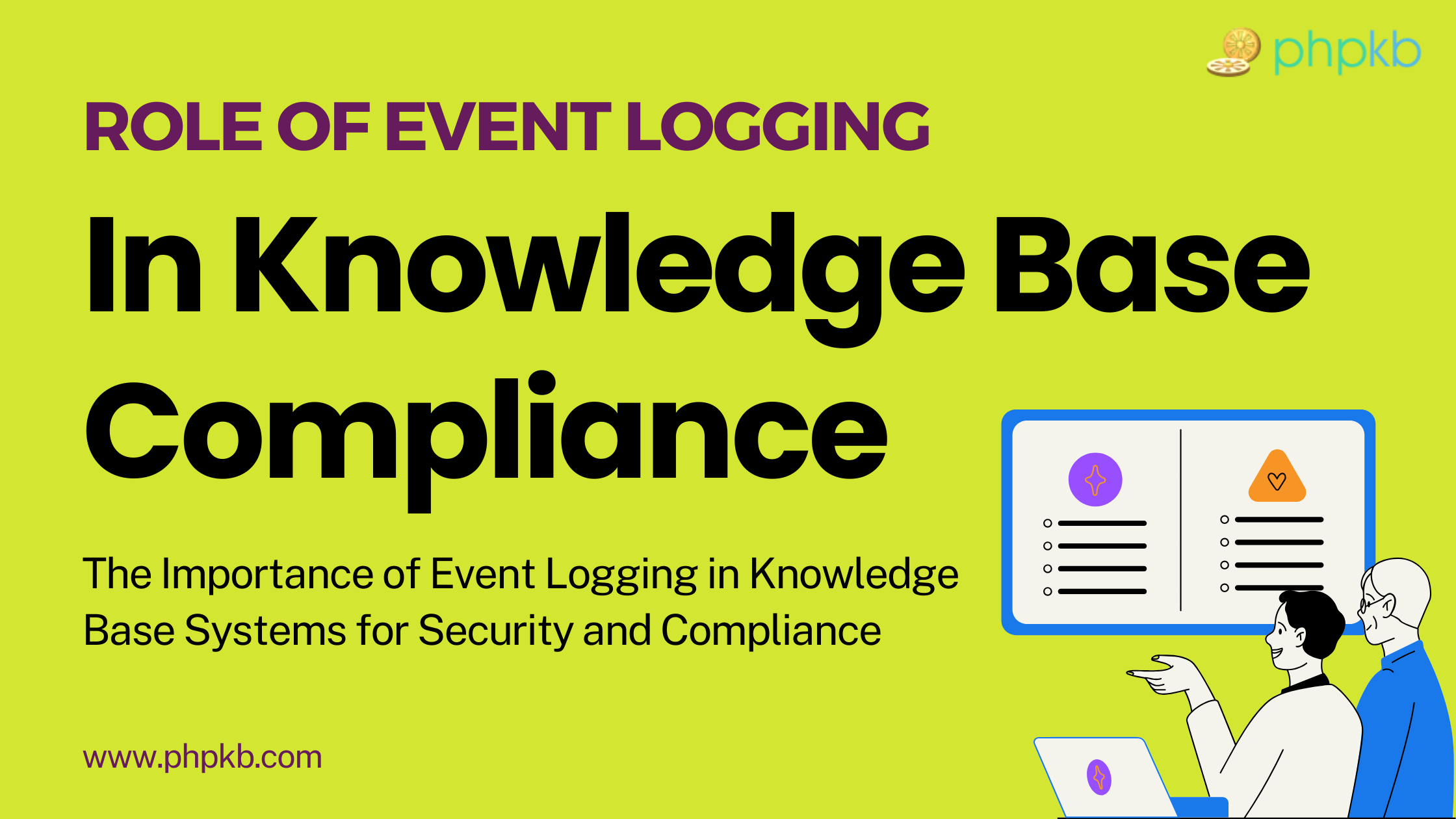The Role of Event Logging in Knowledge Base Compliance
Estimated Reading Time: 3 Minutes
In the digital age, maintaining a robust knowledge base system is crucial for organizational efficiency and information management. One often overlooked but essential component of these systems is detailed event logging. By meticulously recording all events and actions within the knowledge base, organizations can significantly enhance security, optimize performance, and ensure compliance with various industry standards and regulations. This article explores the vital role of detailed event logging in knowledge base systems and how it supports both operational integrity and regulatory adherence.
Event Logging in Knowledge Base
Having a detailed log of all events in your knowledge base system serves multiple purposes and offers numerous benefits, especially in terms of compliance with various standards. Here’s an overview of its purpose, benefits, and how it aids in compliance:
Purpose
- Tracking Activity: Logs provide a comprehensive record of all actions taken within the knowledge base, including user interactions, updates, deletions, and system changes.
- Security Monitoring: Detailed logs help in identifying and investigating security incidents, unauthorized access attempts, and potential vulnerabilities.
- Performance Analysis: Monitoring logs can reveal patterns and trends in usage, helping to optimize performance and user experience.
- Accountability: Logs create a clear trail of who did what and when, which is crucial for accountability and transparency within an organization.
Benefits
- Enhanced Security: By maintaining detailed logs, organizations can quickly detect and respond to suspicious activities, thereby enhancing overall security.
- Problem Diagnosis: Logs can help diagnose issues by providing detailed information about system behavior leading up to an incident.
- Operational Insight: Analyzing logs can offer insights into system usage, helping to identify popular content, user engagement levels, and areas for improvement.
- Data Recovery: In case of data loss or corruption, logs can assist in restoring data by providing a record of all changes made.
- Compliance: Detailed logging is often a requirement for compliance with various industry standards and regulations.
Compliance with Standards
Maintaining detailed logs helps comply with several standards and regulations, including:
- ISO/IEC 27001: This standard requires organizations to implement information security management systems (ISMS). Detailed logs help in monitoring and auditing the effectiveness of ISMS.
- GDPR (General Data Protection Regulation): Under GDPR, organizations must protect personal data and provide transparency. Logs help demonstrate compliance by tracking data access and modifications.
- HIPAA (Health Insurance Portability and Accountability Act): For entities dealing with protected health information (PHI), HIPAA mandates detailed logging to ensure data integrity and security.
- PCI DSS (Payment Card Industry Data Security Standard): Organizations handling payment card information must maintain logs to monitor access and ensure data security.
How Logging Helps in Compliance
- Audit Trails: Logs provide an audit trail that is essential for regulatory audits and demonstrating compliance.
- Incident Response: Detailed logs enable quick detection and response to security incidents, a critical requirement in many standards.
- Data Integrity: Logs help ensure the integrity of data by recording all changes, which is a key aspect of compliance.
- Transparency and Accountability: Logs support transparency and accountability by documenting all user actions and system events, fulfilling regulatory requirements for traceability and responsibility.
By maintaining a detailed log of all events in your knowledge base system, you can not only enhance operational efficiency and security but also ensure compliance with various regulatory standards, thereby protecting your organization from potential legal and financial penalties.